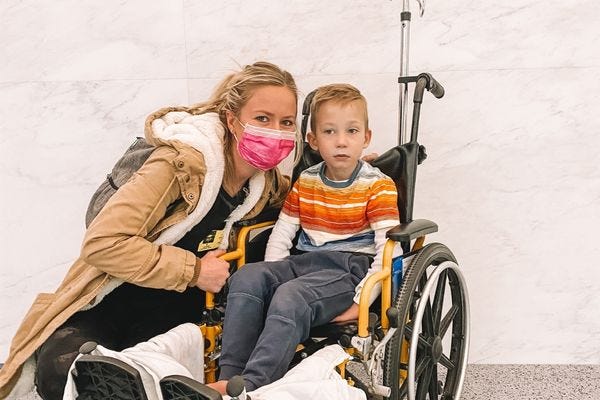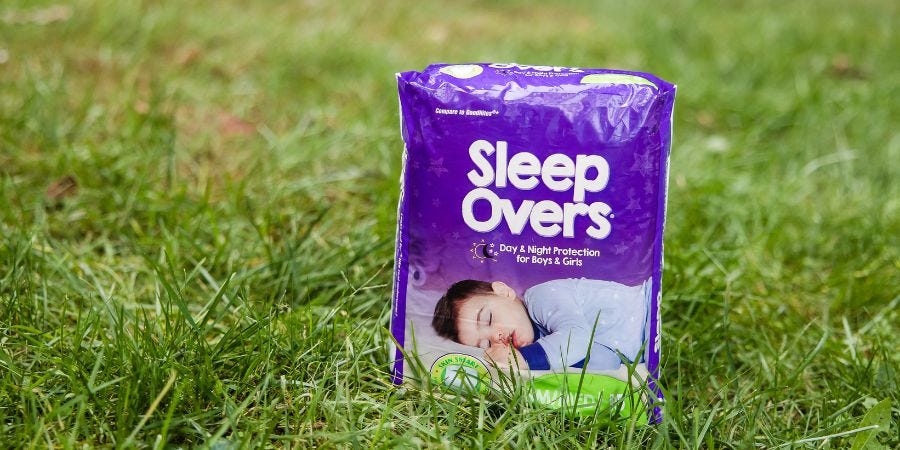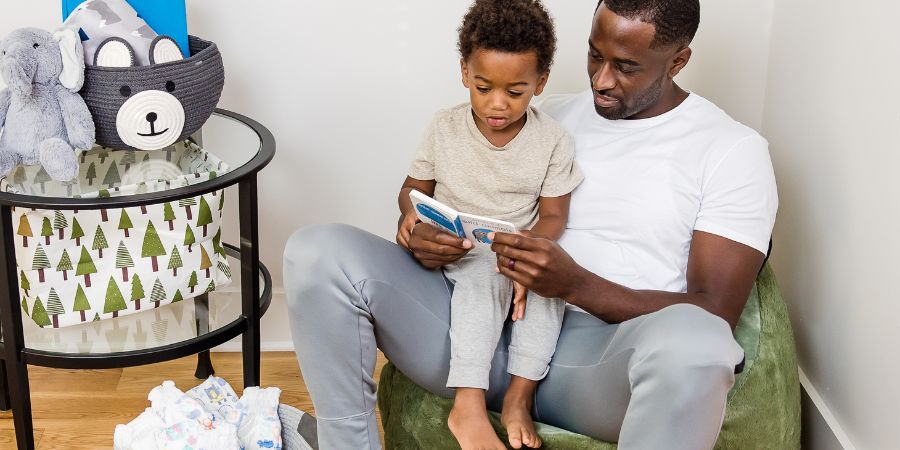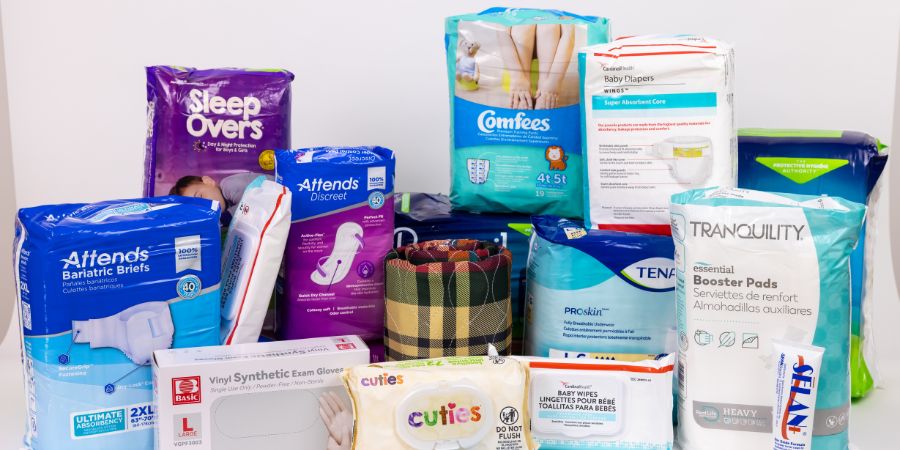Edited by Marlee Septak, Copywriter for Aeroflow Urology.
Pediatric Autoimmune Neuropsychiatric Disorders Associated with Streptococcal Infections (PANDAS) is not very widely talked about but it affects an estimated 1 in 200 children in the United States.
But what exactly is PANDAS and how do you know if your child has the condition? Read the very personal story from Angela Blymiller, Guest Writer for Aeroflow Urology, about her son, Theo's, journey with PANDAS.
Theo's Story
I wish I didn’t know what the acronym for “PANDAS” was.
This is a disease that has affected every aspect of our family’s life since the summer of 2019 when our then 4-year-old son, Theo, started developing some unusual behaviors.
The abrupt onset of symptoms presented months after an unusual bout of scarlet fever. Theo, who had been a very easy going and happy little boy, was not himself almost overnight.
He experienced extreme regression in many ways. He became rigid in his schedule with every slight change throwing him into hysteria. He had separation anxiety that he never had before. Wearing shoes was all of a sudden the worst thing in the world. Obsessive-compulsive disorder (OCD) symptoms showed up out of nowhere.
Check Your Eligibility
2 Easy Steps
From catheters to pediatric and adult incontinence supplies, discover the continence care essentials covered by your insurance.
We were walking on pins and needles, so afraid of what would set him off next. And at his worst, he would scream and cry in pain, clawing at his skin, self-harming.
As his mother, I knew that something wasn’t right. A former pediatric occupational therapist of Theo’s had mentioned to me her learnings about PANDAS in a continuing education course she had attended a year prior. For some reason this information popped into my mind and I began doing my own research and connecting with other special needs parents on Instagram.
That’s when I learned what PANDAS meant. I also learned that PANDAS is closely related to another condition, called PANS, which stands for Pediatric Acute-onset Neuropsychiatric Syndrome. Oftentimes, patients will be diagnosed with both PANDAS and PANS.
Typically, PANDAS side effects present quickly after an illness related to streptococcal infection, such as strep throat, rheumatic fever, and scarlet fever. PANDAS/PANS causes inflammation in the basal ganglia, located in the brain.
The basal ganglia is responsible for controlling emotions, behaviors, motor skills, and motor control. In both of these autoimmune diseases, the immune system creates antibodies to a virus or strep infection and these antibodies mistakenly attack the tissues in that part of the brain.
PANDAS/PANS can present differently with every person and therefore it makes diagnosing the condition very difficult.

Sudden onset of OCD-like behaviors are very common. Tics or different stimming can also be present. There can also be an increase in extreme sensitivity to sounds, light, touch or smell. Often there are significant disturbances in sleep. Intense irritability, aggressiveness, hyperactivity, and self-harm can also occur. PANDAS/PANS is also known to affect the mind by causing depression, hallucinations, and even overall poor motor coordination.
After learning about PANDAS/PANs, I was able to gather the resources needed to present to Theo’s pediatrician. Thankfully, he was open-minded and willing to listen to a concerned parent. He ran the necessary blood tests, and sure enough, Theo received a PANDAS diagnosis.
This diagnosis has led us to several specialists, countless treatments, and so much pain and frustration while trying to find the best care for our son. In that first year of Theo’s diagnosis, he was having cyclical PANDAS flares. We would get through one flare, catch our breath for a few weeks, and then be right back in another one. His worst flare lasted nearly 2 whole months and he ended up having to be hospitalized due to the amount of pain he was experiencing and the self-harm he was inflicting.
And because Theo is considered nonverbal, he didn’t yet have the communication skills to tell us how he was feeling. As a parent, there is absolutely nothing worse than watching your young child scream in pain and not be able to know how to help them.
To say the least, PANDAS has made parenthood a wild roller coaster for my husband and I. We are now 3.5 years into Theo’s diagnosis. He is almost 8 and we have learned many things to help him if and when he does go into a flare. The flares are overall much more mild and manageable... until they aren’t.
Self-Care Tips for Parents
Managing Theo’s flares throughout these last few years has made my husband and I realize something: That we cannot be good caregivers for Theo if we are not first taking care of OURSELVES. There’s absolutely no way to keep on giving and serving our children when we’re running on empty.
The biggest piece of advice we have for any parent, neuro-typical or neuro-divergent, is: SELF-CARE! Anything that gives you life back after pouring your heart into your child would be considered self-care. Anything that allows you time to connect with yourself, anything that brings you joy, and anything that makes you feel like you can get through the day after doing it is self-care.
My husband and I practice it every single day. It's non-negotiable for us. We allow space for each other to take the time each one needs for themselves, whether it’s 5 minutes or 1 hour.
Here are some self-care tips that we incorporate in our lives:
- Movement: Walking, running, hiking, yoga– really any form of exercise.
- Fresh air: Getting outside; It’s so amazing how powerful this can be.
- Breathing: Taking a few minutes to focus on your breath.
- Meditation: Meditating in any form.
- Connection: Grabbing lunch with a friend or talking to someone that can just listen.


- Short-term detachment: Leaving the home and removing yourself from the stress, even if it’s just for a few minutes.
- Journaling: Taking time to process your thoughts or write a list of gratitude.
- Listening: Listening to music, a book, a guided meditation, or a podcast. Truly the possibilities for self-care are limitless!
Finding things that make parenting easier has also been extremely helpful for our family. Grocery pickups, meal services, maximizing insurance benefits, auto-payments for bills, and my personal favorite... Aeroflow Urology for all of our incontinent supplies.
Every month Aeroflow Urology ships pull-ups and wipes for Theo directly to our door. Purchasing incontinence products out of pocket each month can be expensive, overwhelming, and time-consuming when caring for a child with special needs.
Aeroflow Urology provides each person with a Continence Care Specialist that helps to navigate the process from start to finish. They send samples to help get the perfect fit for your unique needs and they even offer tips and tricks that have worked for other customers who have similar conditions.
I never thought Theo would grow out of the diaper removal phase he went through, but our specialist had us try a different style of pull-up, and we haven’t had the issue since! They even help to get your child’s products 100% covered by insurance. All you have to do is fill out a quick form and they handle the rest.


Navigating PANDAS has been a long journey for our family. We learn new things every day. We are truly grateful for the connections we’ve made with other parents along the way and also for the amazing companies like Aeroflow Urology that offer support to parents like us. We could not survive this special needs parenting journey alone. No one can.
Diagnosing PANDAS
There currently are no official tests that can diagnose if a child has PANDAS. Your child’s healthcare provider will most likely use certain criteria to diagnose the condition, according to the National Institute of Health.
Diagnostic Criteria and symptoms to note include:
- OCD
- Tic disorder.
- Onset of symptoms from age 3 to puberty.
- Presence of a group A Beta-hemolytic strep infection.
- Neurological abnormalities, like hyperactivity.
- Sudden onset or worsening of symptoms associated with PANDAS.
Other symptoms of PANDAS that may be considered by your child’s healthcare provider include:
- Attention-deficit hyperactivity disorder (ADHD).
- Separation anxiety.
- Mood changes.
- Sleeping problems.
- Bedwetting.
- Alterations of motor skills.
Treatment for PANDAS
According to the National Institute of Mental Health, curing the strep infection that causes symptoms of PANDAS is the best route to take for treating the condition. Strep infections are typically diagnosed by a healthcare provider with a throat culture and then treated with antibiotics if the results are positive.
A negative throat culture should be looked into; a child with PANDAS symptoms and a negative strep test could have a “hidden” infection in their sinuses, anus, vagina, or urethral opening.
Statistics. (n.d.). PANDAS Network. https://pandasnetwork.org/get-involved/statistics/
NIMH» PANDAS—Questions and Answers. (2019). Www.nimh.nih.gov. https://www.nimh.nih.gov/health/publications/pandas#:~:text=PANDAS%20is%20short%20for%20Pediatric
Information provided on the Aeroflow Urology website is not intended as a substitute to medical advice or care from a healthcare professional. Aeroflow recommends consulting your healthcare provider if you are experiencing medical issues relating to incontinence.










